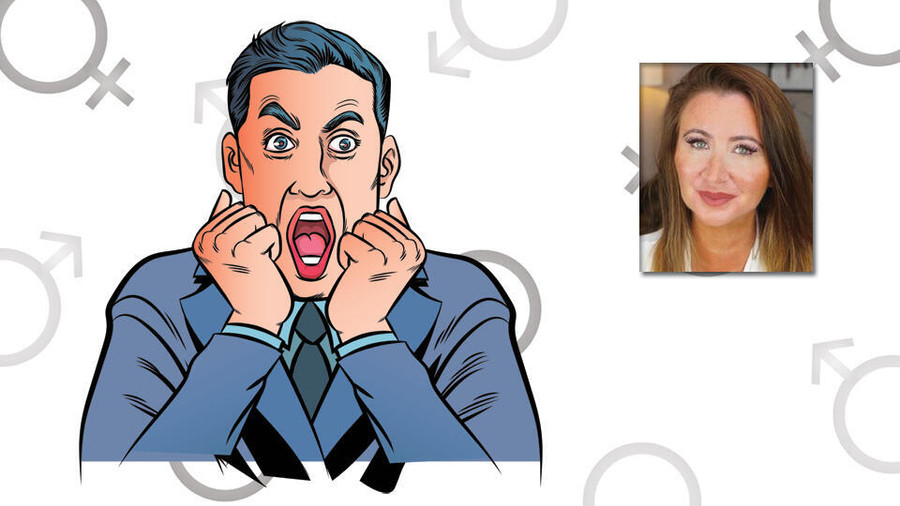Sex is a fundamental part of life. That ought to be an uncontroversial statement. Yet my experience as co-founder of a sex tech brand with a mission to destigmatize sex and pleasure is that we have entered a new era of censorship, driven not by church or state, but by the powerful tech and media giants who control so much of the information we receive.
At Hot Octopuss, much of the content we produce is created specifically for groups who want to enjoy sex but may face challenges in finding information that is relevant for them, such as older people, disabled people and those experiencing sexual dysfunction. However, in recent years our campaigns sharing information about sex for disabled people have been bluntly rejected by mainstream media platforms. Our advertisements about how to tackle sexual dysfunction have been blocked by Google multiple times, and social media platforms such as Facebook, Twitter and Instagram won’t even let us through the door.
Big Tech must work with leaders in sexual health and the sexual wellness industry to review their current policies and ensure regulations are based on common sense.
You may well be thinking, “What’s your point? You are, after all, a sex toy brand. Isn’t some censorship priced in?” Let’s be clear: our content never contains explicit images or video. In every one of these examples, the information that was blocked by the tech giants was targeted squarely at adults, with the aim of providing practical, straightforward advice to improve the quality of the sex they’re having. This is content created with education in mind.
The dawn of the digital age should have made it easier than ever for people to find the information they need. Yet instead of embracing the opportunity, tech and media companies have thrown up new barriers, often with little rationale behind the decisions they are making.
We are not alone in this situation. All over the world, organizations working to promote vital information on sexual health and well-being face extreme and unwarranted levels of online censorship. From charities fighting HIV or promoting contraception to businesses helping adults to have the kind of sex they want, Silicon Valley’s current approach is to bracket us all together in an unmarked envelope and keep us hidden behind their digital counter.
You may be wondering where all this is coming from. Those working in Big Tech are generally thought of as educated, socially liberal and forward-thinking, hardly attributes linked with squeamishness about sex. The big problem is not the personal attitudes of those behind the scenes, but the vague way most adult content policies are written, banning “sexually explicit content” while providing little guidance on what this means in practice. The result is that ads can be rejected and accounts blocked for talking about anything a platform considers sexual. Triggers have included using keywords like “vagina,” or simply daring to talk about sex in the context of pleasure.
Some adult companies have come up with creative ways of circumventing these obstacles. One brand we work with, for example, now sells items like scented candles as a way of sidestepping the censors. Such inventiveness is admirable, but I worry that putting brands in this position only perpetuates the outdated idea that sex and pleasure must exist in some “back room,” to be talked about only in hushed whispers.
This attitude only perpetuates ignorance and stigma. Let down by the poor quality of sex education in schools, as many as nine in 10 teens now use the internet as their main source for information about sex, according to one study — and many young people have increasingly turned to online porn for guidance. While there is certainly a place for porn, we also need to acknowledge that most porn is not created with education in mind. There are far better ways for young people to get the information they need.
The irony is that the tech giants are making it harder for young people to access that kind of information, by treating all information on sexual health and well-being as innately pornographic. Meanwhile, their heavy-handed approach does nothing to stop young people from accessing actual pornography, which is easier today than at any point in history. Instead, it hides educational blogs and content, which only drives young people toward the porn sites that sit at the top of the search results.
What needs to change? First of all, Big Tech needs to meet its responsibility to ensure people can access the information they need, especially groups that have specific needs. That doesn’t mean throwing all regulations out of the window, but a lot could be achieved if search and social media platforms would undertake a comprehensive, grown-up review of what “sexually explicit content” means and what it doesn’t.
Big Tech can’t do this alone. They must work with leaders in sexual health and the sexual wellness industry to review their current policies and ensure regulations are based on common sense rather than blanket censorship. Sex is part of life, and the adult approach is to treat it as such.
Julia Margo is the co-founder and COO of revolutionary sex toy company Hot Octopuss, which in 2013 created the world’s first “Guybrator.








